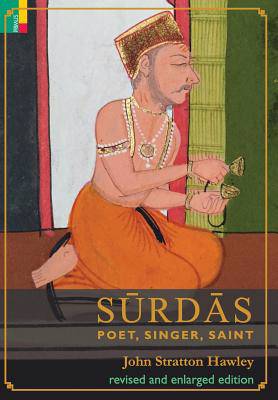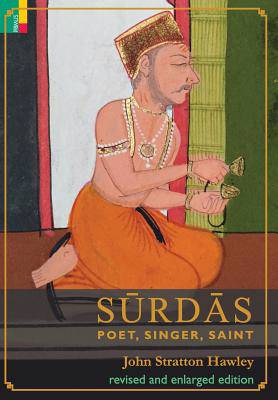
- Retrait gratuit dans votre magasin Club
- 7.000.000 titres dans notre catalogue
- Payer en toute sécurité
- Toujours un magasin près de chez vous
- Retrait gratuit dans votre magasin Club
- 7.000.000 titres dans notre catalogue
- Payer en toute sécurité
- Toujours un magasin près de chez vous
Description
For decades Surdas has been Jack Hawley's ideal poet. But not the Surdas we all think we know--the poet of Krishna's childhood, the disciple of Vallabhacarya. Rather, Hawley focuses on a Surdas who emerges from the early manuscripts where his poems were first collected. They reveal quite another Sur: a poet of extraordinary range, a man who never abandoned his sense of personal struggle, a saint devoted to singing. Was this Surdas blind? Probably not. Did he take initiation from Vallabha? No. Who was he, then? Proceeding theme by theme, Hawley paints a very different portrait. In the final chapter, Hawley shows us how actual portraits of Surdas appeared in the course of the seventeenth century. By roughly 1700, some 150 illustrations of Sur's poems had been painted in Udaipur, and in each one we see the poet himself--far more often than any of his bhakti peers. Hawley argues that the legend of Sur's blindness helps explain this efflorescence. In a new 100-page chapter written especially for this revised edition, we have a chance to see how this visual tradition developed--and to see it in glorious colour.
Spécifications
Parties prenantes
- Auteur(s) :
- Editeur:
Contenu
- Nombre de pages :
- 442
- Langue:
- Anglais
Caractéristiques
- EAN:
- 9789386552662
- Date de parution :
- 25-06-18
- Format:
- Livre relié
- Format numérique:
- Genaaid
- Dimensions :
- 156 mm x 234 mm
- Poids :
- 993 g







